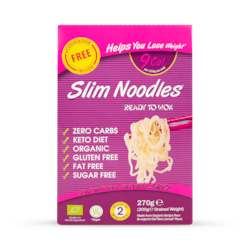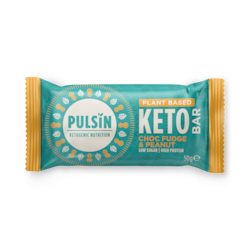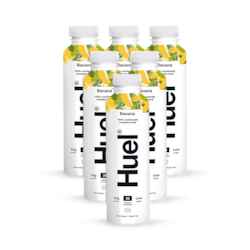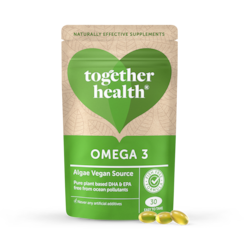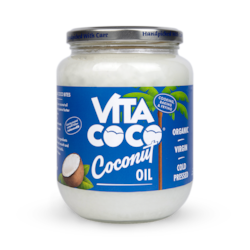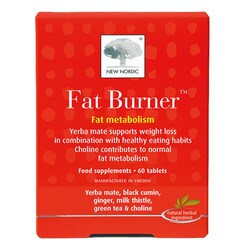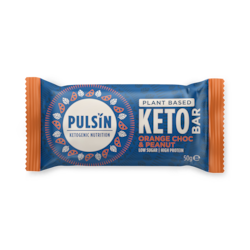20% off £30
What is Keto? Beginners guide to the Ketogenic diet
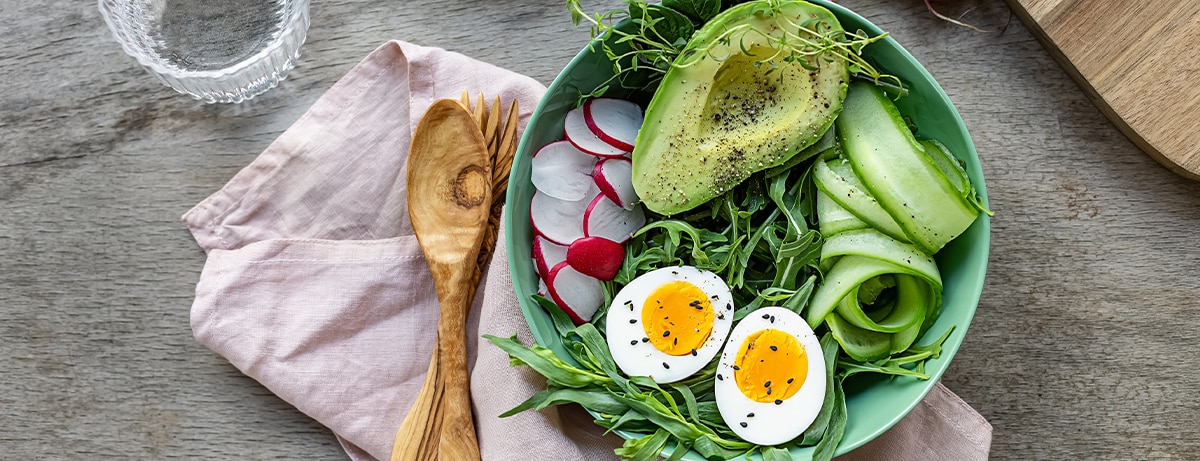
Summary
1What is the keto diet?
The keto diet is a low-carbohydrate, high-fat diet that aims to transition the body into a state of ketosis.
2Keto diet rules
If you’re interested in trying out the keto diet yourself, there are a few things to be aware of first. Here are some of the basic keto diet rules...
39 keto diet benefits
Eating lots of fat to lose fat is understandably quite a difficult concept to get your head around...
The ketogenic diet, commonly known as the keto diet, is a dietary plan that focuses on high fat and low carbohydrate intake to achieve a metabolic state called ketosis.
This on-trend way to eat has soared in popularity in recent years with its reputation of helping people to manage their weight thanks to its high-fat and low-carb methods.
Thinking about giving it a go, or just looking to find out more about the keto diet? Check out our comprehensive guide to the keto diet for beginners below:
What is the keto diet?
The keto diet is a low-carbohydrate, high-fat diet that aims to transition the body into a state of ketosis.
Normally, the body primarily uses glucose from carbohydrates as its fuel source.1 However, in the absence of carbohydrates, the body shifts to burning fat for energy instead – this is referred to as nutritional ketosis.2 Ketosis allows the liver to convert fat into ketones, which then provide energy for the brain.
This shift in fuel utilization is why the keto diet has gained popularity among individuals seeking weight control, as it promotes the burning of consumed or stored fat.
It's important to note that the body takes a few days to adapt to this metabolic shift, so immediate results may not be observed.3
The concept of ketosis is similar to other low-carb diets like the Atkins diet, which have gained recognition in recent decades.

Keto vs. Atkins diet
Keto diet rules
Make sure you’re getting enough protein
Since your body won’t be getting energy from glucose, the role of protein in the keto diet is key for ensuring that it doesn’t use your muscles as a form of energy instead, which can lead to a big reduction in muscle mass.
9 keto diet benefits
Eating lots of fat to lose fat is understandably quite a difficult concept to get your head around.
For decades we have been fed the rhetoric that low-fat = good and high-fat = bad, so when keto came on the scene in a big way, so did the confusion.
1. Keto diet weight loss
Eating lots of fat to lose fat is understandably quite a difficult concept to get your head around.
For decades we have been fed the rhetoric that low-fat = good and high-fat = bad, so when keto came on the scene in a big way, so did the confusion.

- One study found that people lost 2.2 x more weight than other participants on a low-fat, calorie-restricted diet.11
- Another study found that people following a keto diet lost 3 x more weight than a traditional ‘healthy eating’ diet recommended by Diabetes UK.12
- Weight control Hormone balance
- Ratios of Luteinizing Hormone (LH) and follicle-stimulating hormone (FSH)
- Levels of fasting insulin
Keto food list:
When you first start out, knowing what foods you can and can’t eat can be a minefield. But don’t worry. We’ve listed some foods & drinks that are safe if you are following the keto diet:
- Meat: steak, red meat, sausage, ham, chicken, turkey and bacon are all safe to have on a keto diet plan.
- Fatty fish: trout, salmon, tuna and mackerel are also on the green list.
- Butter and cream
- Eggs
- Cheese: choose unprocessed cheeses like goat, cream, cheddar, mozzarella and blue where possible.
- Nuts and seeds: walnuts, almonds, pumpkin seeds, flax seeds, and chia seeds are all wonderful additions to the keto diet, packed full of nutrients to keep you fuelled throughout the day.
- Avocados: thankfully both whole avocadoes and homemade guacamole are safe to eat on the keto diet.
- Healthy oils: coconut oil, extra virgin olive oil and avocado oil are the best kinds of oils to use on this diet.
- Low-carb vegetables: cauliflower, cabbage, spinach, courgette, lettuce, cucumber, asparagus & kale.
- Low-carb fruits: raspberries, blackberries, strawberries, plum, kiwi, cherries, blueberries, clementine, cantaloupe & peaches.

If you're seeking a detailed keto diet plan for beginners, look no further! We’ve put together a comprehensive and informative keto meal plan for beginners to kickstart your keto journey. This plan will provide you with inspiration, meal prep ideas, and helpful tips to support your successful transition into a ketogenic lifestyle.
Keto diet foods to avoid
- Sugar-laden foods: Fruit juices, fizzy drinks, cake, ice cream, smoothies, sweets, milk chocolate, etc. are a no-go.
- Starches and grains: Rice, pasta, cereals and other wheat-based foods should be avoided at all costs.
- Carb-heavy fruit: Avoid most fruits except low-glycemic impact berries like blueberries and strawberries – as well as the fruits we listed above.
- Legumes and beans: Chickpeas, kidney beans, black beans, lentils, peas, etc.
- Tubers and root vegetables: White potatoes, sweet potatoes, parsnips, carrots, etc.
- Diet/low-fat products: Avoid these as they are normally processed and high in carbs.
- Some sauces and condiments: Check the nutritional information of your favourite sauces and condiments because some could be very high in sugar. Ketchup, BBQ sauce & sweet chilli sauce are all on the no-go list, unfortunately!
- Too many unhealthy fats: Cut back on your use of processed vegetable oils, mayonnaise, etc. Sugar-free ‘diet foods’
- Sugar-free products: are highly processed and tend to be high in sugar alcohols, which have been seen to affect ketone levels so it’s best to avoid them.
- Alcohol: Most alcohol has a very high carb and sugar content, which means it would throw you straight out of the ketosis state.
Is the keto diet healthy?
The keto diet can yield great results for some individuals, but it's not suitable for everyone.
While some studies have shown that a ketogenic or low-carb diet may aid in weight management, improve insulin sensitivity, and provide certain therapeutic benefits, it requires careful planning to ensure proper nutrient intake.5,21,22
Following a well-formulated keto diet with a variety of nutrient-dense foods, monitoring nutrient deficiencies, and considering individual health conditions are essential.
As a relatively new dietary concept, the long-term effects of following a keto diet have not yet been observed.
It's recommended to consult with a healthcare professional or registered dietitian to determine if the keto diet is appropriate for you and to receive personalised guidance.

Do I need to take ketosis supplements?
7 side effects of the keto diet
Keto flu is the most common side effect people experience when adapting to the ketogenic diet. To tackle keto flu, make sure you drink plenty of water and get plenty of sleep. Here are some side effects to be aware of:
- Symptoms like fatigue and fogginess are common in the first few days as your body gets used to eating little-to-no carbohydrates.23
- More symptoms of keto flu include diarrhoea, constipation and vomiting.24
Less commonly, however, you may experience:
- Nausea
- Increased hunger
- Worsened exercise performance
- Digestive discomfort
- Issues with sleeping
Is the keto diet suitable for everyone?
While keto works well for a lot of people, it’s not necessarily the best diet for everyone. Before starting the keto diet, it is always a good idea to speak with your GP or a healthcare professional to see if this would be a good option for you.
People who are pregnant or breastfeeding, have type-1 diabetes, have pre-existing liver conditions or have undergone gallbladder removal shouldn’t go on a keto diet.
Are there different types of ketogenic diets?
Yes, there are a few different versions of the ketogenic diet, including:
- SKD – Standard ketogenic diet: this is the typical keto diet that people are referring to when they talk about ketogenic diets. It’s a super low-carb, high-fat and moderate-protein diet that typically contains 5% carbs, 20% protein and 75% fat.11
- CKD – Cyclical ketogenic diet: keto cycling is a favourite for bodybuilders and athletes who may struggle to get all the energy they need to train effectively through a keto diet, the CKD diet adds in periods of ‘carb refeeds’, e.g. they follow the standard keto diet for 5 days then allow themselves 2 high-carb days, then repeat the whole cycle again.
- TKD – Targeted ketogenic diet: another favourite for athletes and those with a strenuous training routine, the targeted ketogenic diet allows you to eat some carbs around your workouts.
- High-protein ketogenic diet – just keto with more protein, this version of a keto diet typically advises you to replace some of your dietary fats with protein. The ratio often looks like 60% fat, 35% protein and 5% carbs.
Most of the things discussed in this article will be referring to the standard ketogenic diet. However, as you can see above, many of the main principles of keto apply to all these diets so you should be able to adapt any information quite easily to each one.
Can you do a vegan or vegetarian keto diet?
Yes! The main source of fat in a standard keto diet is meat and oily fish, however, vegetarians can do the keto diet by substituting with increased dairy products, eggs and meat alternatives.
If you opt for a vegan keto diet, make sure to eat the following ketogenic diet foods:
- Vegan ‘meat’: tofu, tempeh, seitan, pea protein faux meats, soya faux meats and any other low-carb, high-protein vegan ‘meat’
- Mushrooms: try to find ‘meaty’ varieties like king oyster, shiitake, chestnut, etc. but normal ones will do fine too!
- Leafy greens: kale, spring greens, spinach, etc.
- Above ground vegetables: cauliflower, courgettes, broccoli
- High-fat alternatives to dairy: replace dairy with vegan coconut or soya-based yoghurts, creams and cheeses
- Low-glycemic impact berries: raspberries, blackberries, blueberries and similar
- Sea vegetables: kelp, dulse, bladderwack, etc.
- Fermented foods: kimchi, sauerkraut and other pickled vegetables
Meat-eaters can eat all of these foods too, of course! Read more about what you can eat on a ketogenic diet as a vegan here.
Can you exercise on the keto diet?
Yes, you're able to exercise while following the keto diet. However, if you’ve just made the transition to keto, you may find that your body may struggle to perform certain activities at the same level you are used to.
When taking part in high-intensity exercises like circuits and sprinting, your body looks for something to burn quickly, which is usually carbohydrates.
And, seeing as the keto diet limits the amount of carbs you are consuming, you may find high-intensity workouts a little more draining. Avoid HIIT and circuits while your body gets used to restricting carbs.
Low-intensity cardio burns more fat to fuel your body. Try swimming, jogging, and cycling. If cardio isn’t your thing, strength training is also an option – try fewer reps with lighter weights to see how you fair.
The final say
The keto diet has gained popularity due to its high-fat, low-carb approach, and potential benefits for weight management.
While it may not be suitable for everyone, it could provide appetite control, increased metabolism, and potential therapeutic applications for certain conditions.
Not sure if the ketogenic diet plan is for you? Discover which diet is for you here.
Or if you have a condition that could complicate matters, it’s best to consult your GP for professional advice before giving it a go.
2. https://www.ncbi.nlm.nih.gov/books/NBK499830/
3. https://pubmed.ncbi.nlm.nih.gov/28599043/
4. https://www.mayoclinic.org/healthy-lifestyle/weight-loss/in-depth/atkins-diet/art-20048485
6. https://www.hsph.harvard.edu/nutritionsource/healthy-weight/diet-reviews/ketogenic-diet/
7. https://www.ncbi.nlm.nih.gov/pmc/articles/PMC3257631/
8. https://www.ncbi.nlm.nih.gov/pmc/articles/PMC9003261/
9. https://www.ncbi.nlm.nih.gov/books/NBK499830/
10. https://www.dietdoctor.com/low-carb/keto/supplements
11. https://pubmed.ncbi.nlm.nih.gov/12679447/
12. https://pubmed.ncbi.nlm.nih.gov/17971178/
13. https://www.ncbi.nlm.nih.gov/pmc/articles/PMC3374237/
14. https://www.ncbi.nlm.nih.gov/pmc/articles/PMC5452247/
15. https://www.heartuk.org.uk/cholesterol/hdl-cholesterol
16. https://www.ncbi.nlm.nih.gov/pmc/articles/PMC6720297/
17. https://pubmed.ncbi.nlm.nih.gov/30554068/
18. https://pubmed.ncbi.nlm.nih.gov/30554068/
19. https://www.ncbi.nlm.nih.gov/pmc/articles/PMC1334192/
20. https://pubmed.ncbi.nlm.nih.gov/22327146/
21. https://www.ncbi.nlm.nih.gov/pmc/articles/PMC7705738/
22. https://www.nature.com/articles/ejcn2013116
23. https://www.diabetes.co.uk/keto/side-effects-of-ketogenic-diet.html
The advice in this article is for information only and should not replace medical care. Please check with your GP or healthcare professional before trying any supplements, treatments or remedies. Food supplements must not be used as a substitute for a varied and balanced diet and a healthy lifestyle.




